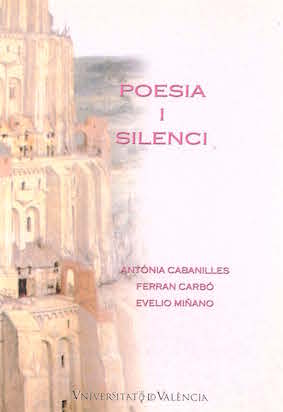Quatre poemes amb gall en l’evolució de Joan Vinyoli
DOI:
https://doi.org/10.7203/qf-elit.v11i0.5066Paraules clau:
gall, crit, poesia, Vinyoli Resum
Resum
L’article revisa quatre poemes al llarg de l’extensa evolució del poeta català Joan Vinyoli, els quals tenen un motiu poètic coincident: el del gall, un motiu especialment rellevant perquè integra alhora un doble àmbit complementari: d’una banda, és l’animal que trenca el silenci amb el seu crit; i, de l’altra, des de la foscor és l’ésser que anuncia l’arribada de l’aurora i la llum. Per tots dos aspectes es convertirà en una imatge permanent amb una clara càrrega simbòlica que l’autor explotarà per a parlar de la recerca del poeta i de la indagació en la creació poètica.
 Descàrregues
Descàrregues
Descàrregues
Publicades
Com citar
-
Resum1732
-
PDF (Español)8299
Número
Secció
Llicència
 Este obra está bajo una licencia de Creative Commons Reconocimiento-NoComercial-SinObraDerivada 4.0 Internacional.
Este obra está bajo una licencia de Creative Commons Reconocimiento-NoComercial-SinObraDerivada 4.0 Internacional.
Tots els documents inclosos a OJS són d'accés lliure i propietat dels seus autors i/o institucions editores, i per tant, qualsevol acte de reproducció, comercialització, comunicació pública o transformació total o parcial necessita el consentiment exprés i escrit d'aquests.
________
Authors who publish with this journal agree to the following terms:
- Authors retain copyright and grant the journal right of first publication with the work simultaneously licensed under a Creative Commons Attribution License that allows others to share the work with an acknowledgement of the work's authorship and initial publication in this journal.
- Authors are able to enter into separate, additional contractual arrangements for the non-exclusive distribution of the journal's published version of the work (e.g., post it to an institutional repository or publish it in a book), with an acknowledgement of its initial publication in this journal.
- Authors are permitted and encouraged to post their work online (e.g., in institutional repositories or on their website) prior to and during the submission process, as it can lead to productive exchanges, as well as earlier and greater citation of published work (See The Effect of Open Access).



